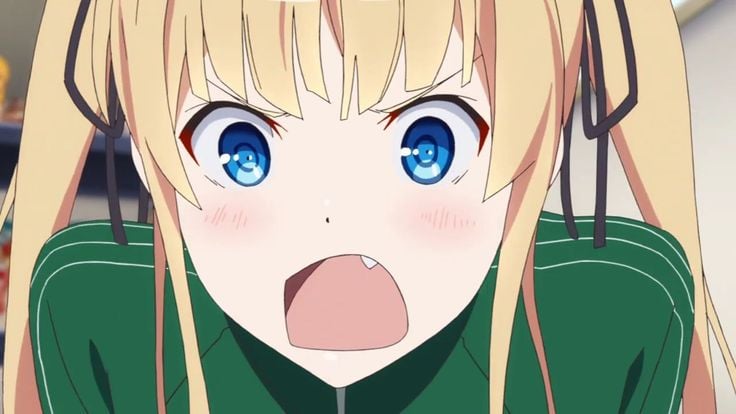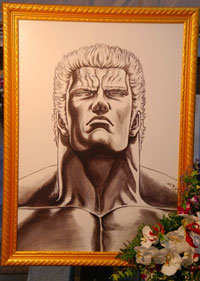One of the more amazing aspects of the Japanese is how aware they are of popular American brands. When my wife and I got married and built our Japanese house, we went shopping for a good bed. I was surprised to find that the top ranked bed we found was American, good old Sealy Posturepedic, and that’s what we went with, partially because my wife wanted to be able to buy sheets in the U.S. (bed sizes are slightly smaller in Japan, so U.S. sheets wouldn’t fit). If you like motorcycles, Harley-Davidson is incredibly popular here, and there are three or four dealers within 50 km of my house right now. Japanese men are likely to shave with a Gilette Mach 3, and as in the States, a good cup of coffee is defined in relation Starbuck’s more often then not. One of the most well-known brands of alcohol is Jack Daniels, a company which has found fertile ground selling their Tennessee Whiskey here, exploiting their long history and building a legend around their name. Of course as an American I know that not every country has a positive image of my country, especially the way world events have been running, but happily, Japan is one of the few places in the world where most people feel unreservedly good about the USA (which is always nice).
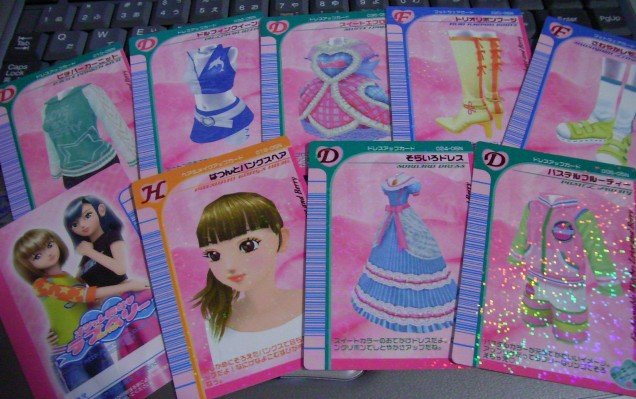
That Sega is one smart company. A few years ago they created Mushi King (Bug King), a card game that capitalized on the fascination boys here have with beetles and other crawlies. You drop 100 yen into the coin slot and get a random “bug card” with bar codes on the sides to indicate what insect you’re fighting with, then you do battle with other bugs by swiping your card to choose attacks. It was a smash hit, and for months you had to wait in line to play. Sega recently brought this concept to girls with Love & Berry, a popular game in which girls get cards representing clothes, shoes and other fashion accessories, which they can use to outfit their character and make her look o-sha-re (meaning “cute and fashionable”). The characters then battle by dancing in their cute new outfits, and get points for how good they look while doing it and how well they keep to the beat of the song. Everywhere you go, it seems, there’s a crowd of girls waiting to play this game, with mothers standing around talking to each other while their kids wait in line. In generations past, video game arcades have had a bad image, akin to pool halls in a past era, but kid-friendly games like these are slowly changing things.
The Japanese often abbreviate words to make them easier to work with, such as English terms that are clumsy to use in the syllable-based kana writing system. For example, the English word digital camera is often shortened to digi-kame, American comics are known as ame-komi, an American short hair cat is ame-sho, a personal computer is a pasokon, and so on. They also come up with some “English” (quote unquote) abbreviations that can be quite difficult for gaijin to puzzle out. A TV commercial is known as a CM (“commercial message”), and some guys might make a CD of BGM (background music) to play on that special date. Before doing something, you should consider the TPO — this Japanese word is short for “time, place, occasion.” Several English abbreviations which sound strange to my American ear are actually British terms, possibly archaic, like OB/OG (“old boy/girl,” i.e. an alumnus of a university), NG (“no good,” the opposite of OK), and WC (“water closet”). See if you can figure out what these terms mean:
3LDK
PA
HP
OA
FA
IC
Answer in the next update!
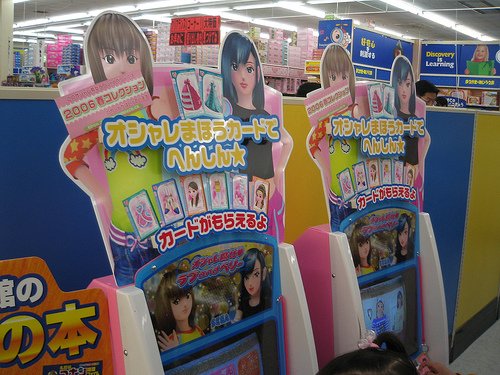
The Love & Berry machines at Toys R Us.
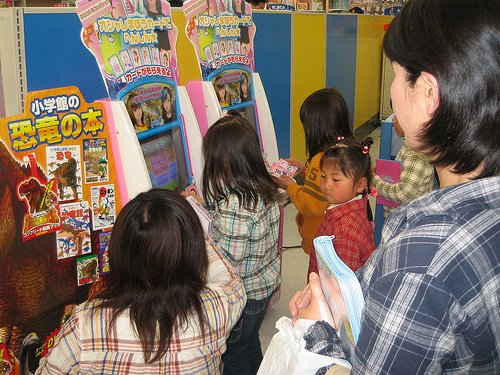
Lots of kids gathered around, and lots of impatient mothers.
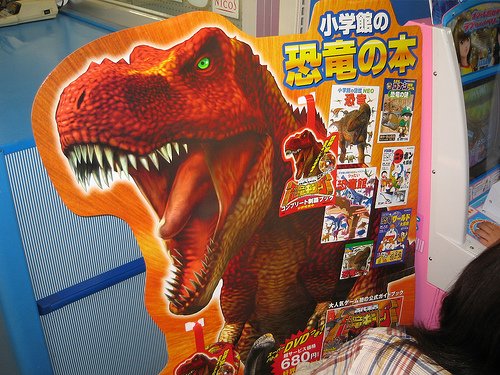
There are spin-offs, too, of course. This is Dino King, where you fight against dinosaurs instead of bugs.



